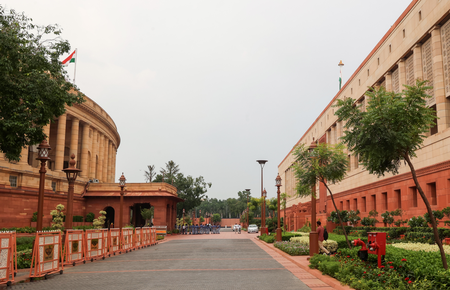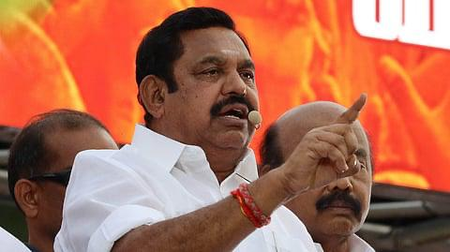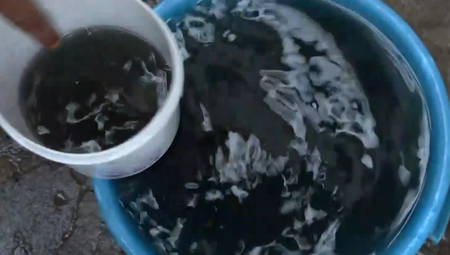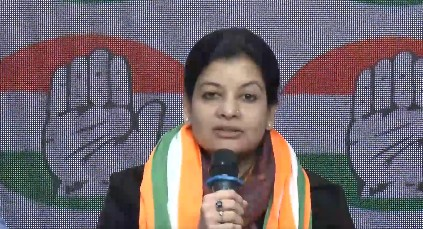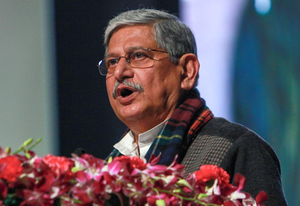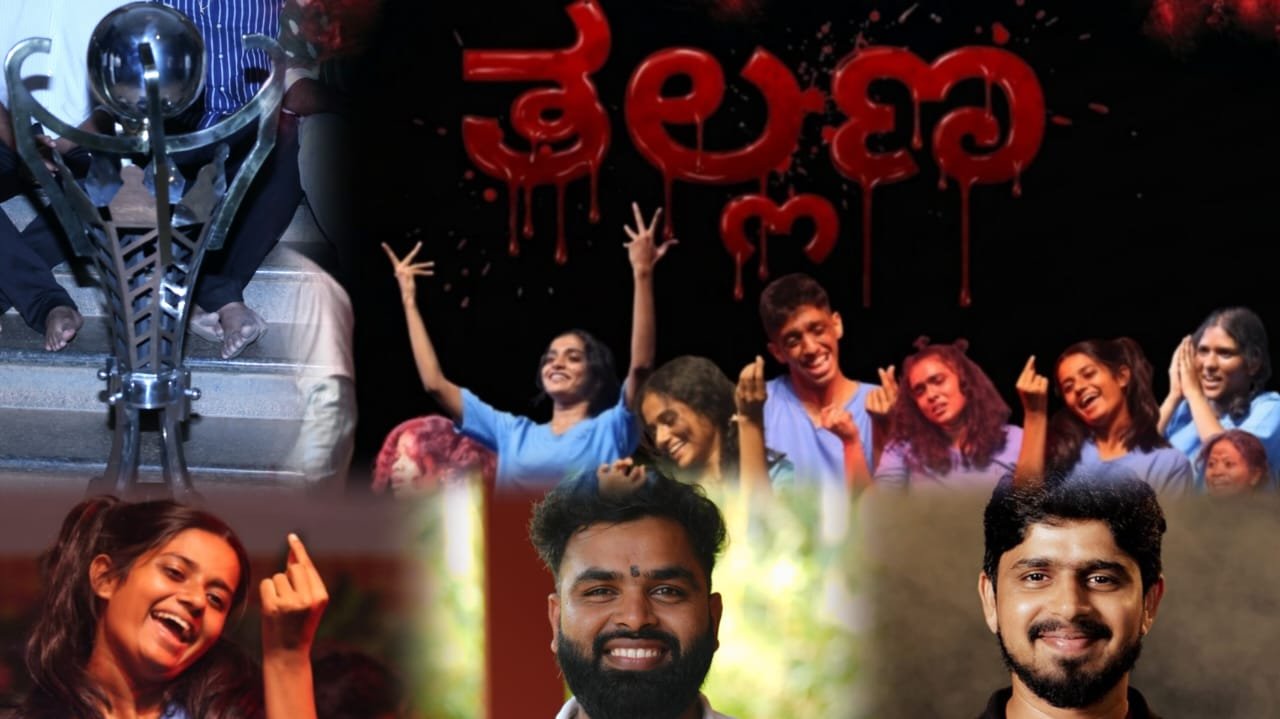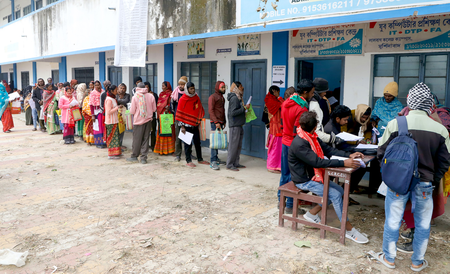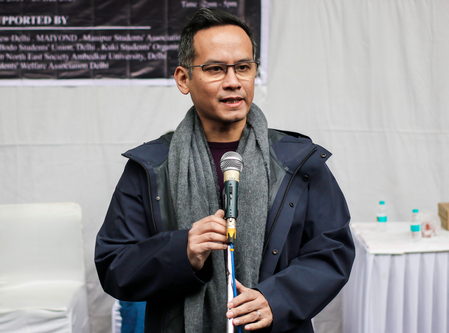
New York, Jan 4 (IANS) Venezuelan leader Nicolas Maduro has been locked in a notorious federal jail in New York after his capture by the US forces at a military base in his country, from where he had been taunting President Donald Trump.
As he was escorted into the local office of the Drug Enforcement Agency (DEA) on Saturday night before being jailed, he said sarcastically, looking at the camera, “Good night. Happy New Year”.
Once the unquestioned ruler of the oil-rich South American nation, in the video released by the White House, he was in a brown uniform, manacled and clutching a water bottle while two DEA officers held him on either side by his elbows.
Maduro and his wife Cilia Flores, who were taken in the early Saturday morning raid, landed at the Stewart Air National Guard Base about 100 kilometres from the city, from where they were flown to a heliport in downtown Manhattan near federal offices and courts.
Amid high security, their first stop was the DEA office because of the narco-terrorism charges they face.
Next, they were taken to the Metropolitan Detention Centre (MDC) in Brooklyn to await production in the New York federal court, which is expected on Monday.
A large crowd gathered near the jail, jeering him and shouting insults.
Maduro, who had a $50 million bounty for his capture, was taken from the Venezuelan military base, Fuerte Tiuna, to the USS Iwo Jima, one of the Navy ships in the armada surrounding Venezuela, before being flown to the US air base.
In charges announced by Attorney General Pam Bondi, they are accused of narco-terrorism, conspiracy to import cocaine, and possession of weapons.
An outstanding indictment issued in 2020 charged them also with heading the drug organisation Cartel de los Soles.
Trump left open the possibility of the trial being transferred to Miami, which has the largest population of Venezuelan exiles in the US and the news of his capture was met with jubilation.
“A decision will be made, I assume, between New York and Miami or (elsewhere) Florida,” Trump said.
The MDC, which is known for its bad conditions, has housed terrorists Omar Abdel Rahman and Ramzi Yousef, notorious arms trafficker Viktor Bout, Mexican drug lord Joaquín “El Chapo” Guzman, financial scammer Sam Bankman-Fried, and rapper Sean “Diddy” Combs.
Pedophile Jeffrey Epstein, whose circle of acquaintances included powerful politicians, businessmen, and celebrities, was found dead there, and officials say it was a suicide.
Maduro’s jailmates include Luigi Mangione, who is on trial, accused of killing United Healthcare CEO Brian Thompson, and has taken on the aura of a folk hero.
The overcrowded jail’s conditions are so bad that in 2024, a federal judge said the conditions at MDC created “exceptional reasons” for not remanding a man there.
Trump has framed the capture of Maduro as an anti-drug operation to create the impression of a commonplace law and order operation to skirt international law provisions against violating the sovereignty of nations.
For now, he has left Maduro’s Vice President Delcy Rodriguez, who was sworn in as his successor, to stay in place.
“She’s essentially willing to do what we think is necessary to make Venezuela great again,” Trump said.
Rodriguez, however, in a fierce rebuttal, accused the US of aggression and said, “This regime change would also allow for the seizure of our energy, mineral and natural resources”.
“There is only one president in this country, and his name is Nicolas Maduro,” she declared.
Secretary of State Marco Rubio said about Rodriguez and the interim administration, “We’re going to make decisions based on their actions and their deeds in the days and weeks to come”.
But clouding the scenario, Trump has also said, “We are going to run the country right”, and that “It’s going to make a lot of money”.
That was a likely reference to Venezuela’s oil riches.
He had accused Caracas of “stealing” US riches because of its nationalisation of the investments by American petroleum companies.
He has also said that there would be no troops on the ground in Venezuela, without explaining how the US would “run” the country.
Maria Corina Machado, the opposition leader who won last year’s Nobel Peace Prize, has also staked a claim to the presidency for Edmundo Gonzalez, who ran against Maduro in the 2024 election, which the US and many international observers said was rigged.
Gonzales ran as the opposition candidate after Maduro barred Machado from contesting the election.
Although Trump has backed the claim of a rigged election and Gonzales being the real winner, he has been silent about them.
The Justice Department said in the charging document that Maduro, along with his wife, the current and former interior ministers, carried out a drug operation for 25 years and sat “atop a corrupt, illegitimate government that, for decades, has leveraged government power to protect and promote illegal activity”.
Also included in the charge sheet are the leader of Tren de Aragua, the violent Venezuelan gang that proliferated across the US during former President Joe Biden’s rule, the Colombian terrorist groups FARC and ELN, and Mexican drug cartels Sinaloa and Zeta.
Maduro and his associates are accused of working with those groups in running the alleged drug operation.
–IANS
al/dpb
